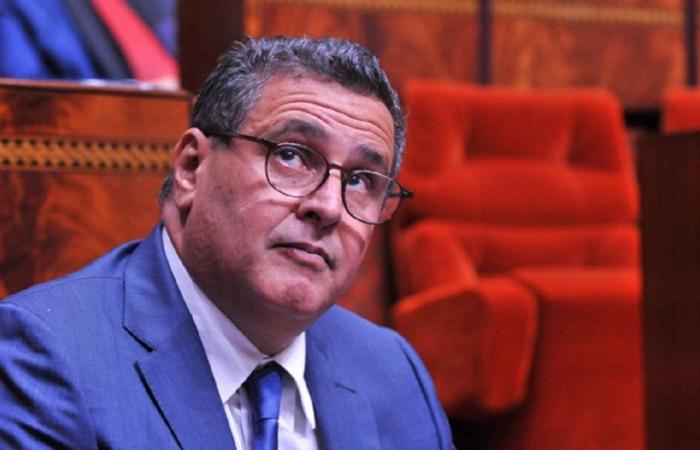The Moroccan political landscape is marked by high ambitions, but also by urgent problems to be resolved. The government led by Aziz Akhannouchwho has begun his fourth year in office, finds himself faced with a series of challenges complexes that threaten the socio-economic stability of Morocco. LGovernment Labor Observatory looked into the matter and examined in detail the files that the government will have to prioritize, emphasizing the importance of developing integrated strategies to meet the expectations of citizens and achieve the ambitious objectives of the new development model for Morocco.
Corruption in Morocco: an alarming economic and social threat
According to the Observatory, corruption emerges as one of the main obstacles to the development of the country. It has reached alarming levels threatening the national economy and the social stabilitywith an estimated cost of more than 50 billion dirhams per year. This observation significantly affects the financial resources of the State and slows down reforms intended to improve the standard of living of citizens.
It should be noted, in this context, the latest ranking of Morocco which regressed in the Corruption Perception Indexgoing from 73rd to 97th place in the world in five years. The report of the National Anti-Corruption Authority for 2023, for his part, criticized the lack of commitment of institutions in the application of anti-corruption measuresaccentuating the crisis and weakening governance. The government is under pressure to restore citizen confidence and attract investment. This context places the government under increasing pressure to find rapid and concrete solutions in order to restore citizens’ confidence and improve the business climate to attract investments, says the document.
Mobilization of financial resources and maintenance of balances
The increase in public spending, linked to reform projects and development, poses a major challenge to the government ofAziz Akhannouch. Find sustainable sources of financing to continue these projects while maintaining budgetary stability is crucial. The Policy paper emphasizes the need for the government to reconcile development commitments, such as improving infrastructureof the energy and water projectsthe development of the health and education sectors, as well as improving the purchasing power and income of citizens, while maintaining budgetary discipline and reducing the deficit. This requires an equitable increase in tax revenues, the attraction of foreign investment, and international financing. However, prudent management is essential to avoid excessive debt (currently at 69% of GDP) and maintain efficient and targeted public spending.
The social protection project… Challenge of financial sustainability
The social protection project in Morocco is one of the top priorities from Morocco. With an estimated cost of 51 billion dirhams per year, the Kingdom faces a financial sustainability challenge. Financed by state contributions and contributions of members, this system is experiencing dysfunctions, in particular with revenues representing only 27% of targeted members, according to a report from the Court of Auditors. This low participation rate reflects a lack of citizen confidenceaggravated by the absence of reforms aimed at making the project more attractive and equitable. Without these reforms, the financial pressure risks compromising the sustainability of the project and its social objectives.
Pension reform… The risk of bankruptcy
The pension reform in Morocco is another important challenge for Morocco, which constitutes an urgent crisis to be resolved, with a risk of bankruptcy of the regime of civil pensions planned by 2028. The government will then have to inject around 14 billion dirhams per year to guarantee the payment of pensions. Aware of the scale of the problem, the State announced, via the social dialogue agreement, a reform based on three axes: the increase in contributionsthe increase in retirement age at 65 years old, and pension reduction. However, these measures are strongly contested by the unions, who believe that they increase the costs of employees without guaranteeing sustainability of the system. The lack of consensus between the government and social partners makes the situation even more complex, and balanced reform remains difficult to achieve without major concessions.
Employment: an urgent challenge for the Akhannouch government
Employment constitutes one of the main challenges of Aziz Akhannouch’s government, with a high unemployment rate of 13.7% and more than 1.5 million young people without employment, training or education (NEET). The crisis is accentuated by the effects of global economic crises and drought, which have caused the loss of more than 160,000 jobs in the agricultural sector.
To remedy this situation, the government must turn towards an economic transformation focused on industry, with the creation of adapted employment programs, the strengthening of vocational training and support for small and medium businesses (SME). Encourage investment in industrial sectors and services is also crucial for generating sustainable jobs.
The energy transition and water… The major ambition
The Akhannouch government faces significant challenges in the sectors of energy and of water. In terms of energy, the transition towards renewable energies is crucial to reducing dependence on fossil fuels, which represent around 50% of trade deficit. The objective is to reach 52% renewable energy by 2030, requiring investments of 143 billion dirhams to develop solar infrastructurewind turbines and green hydrogen.
In terms of water, the crisis is exacerbated by climate change and the scarcity of water resources. The government plans to build 36 desalination plants and connect water basinswith a total investment of 30 billion dirhams. However, the weak coordination between ministries and the lack of awareness among citizens on the natural resource management complicate these efforts. A rapid response is essential to guarantee sustainable development and the improvement of citizens’ standards of living.
Social discontent…a worrying rise
Aziz Akhannouch’s government faces growing social discontent, marked by demands for salary increasesan improvement in the standard of living and the preservation of purchasing power. L’inflationparticularly on the food prices and energy, has had a strong impact on the daily lives of citizens, weakening their purchasing power and increasing social tensions.
To respond to these challenges, the Policy Paper proposes that the government allocate more resources to social programswhile adopting economic policies and structural reforms to support growth and create jobs. Particular attention must be paid to the most vulnerable categories, including those operating in the informal sector. Managing this crisis requires inclusive approachinvolving unions and civil organizations, in order to find a balance between the needs of citizens and thestate apacity.






